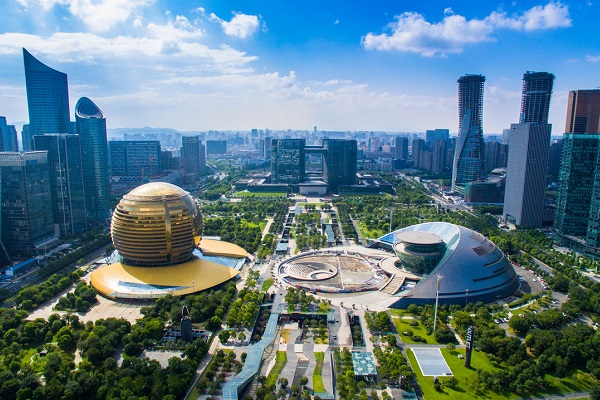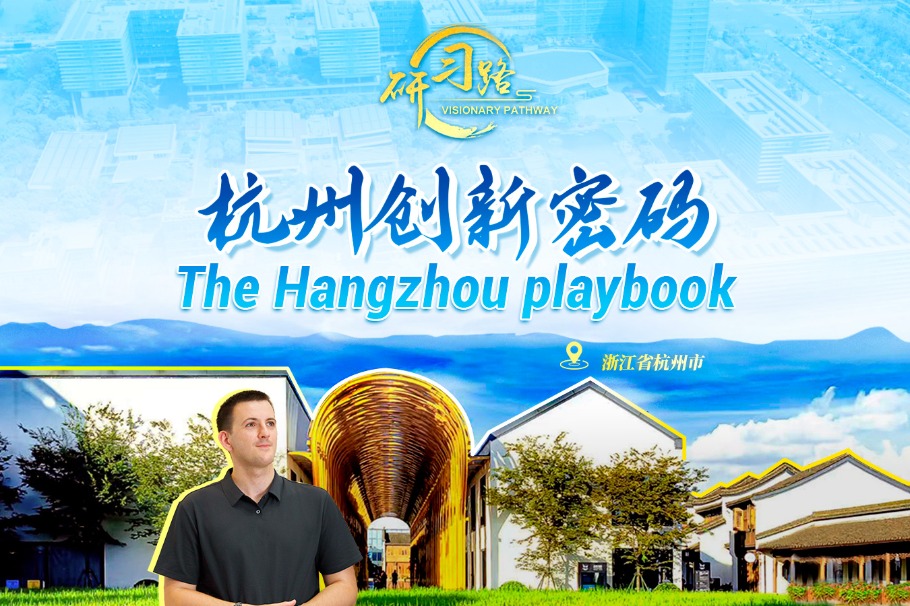More businesses from Europe aspire to tap greater Chinese market potential, by ramping up innovation levels
European companies in China are ramping up innovation in fields such as biomedicine and advanced manufacturing, in a bid to provide higher-end equipment with more customized solutions for the Chinese market.
French cosmetics giant L'Oreal recently announced a new global sustainability innovation accelerator program. Backed by a 100-million-euro investment plan over five years, the program seeks to identify, test, and scale sustainable solutions across major industrial fields.
The program welcomes applications from high-potential Chinese start-ups, small and medium-sized enterprises (SMEs) and established innovators, and the focus areas align with L'Oréal's four sustainability pillars - climate, nature, circularity, and communities, the company told the Global Times.
Last month, the company formed a strategic partnership with Veminsyn, an innovative Chinese biotechnology start-up, and will make a minority investment in it. The two parties will collaborate to jointly develop innovative bioactive ingredients and promote large-scale production, as well as develop cosmetic raw materials using low-carbon biomanufacturing technology.
An increasing number of foreign-invested enterprises are emphasizing technology innovation in China, offering higher-end equipment, advanced technical training, and tailored solutions for the Chinese market—a trend gaining steady momentum.
At the Schneider Electric 2025 Innovation Summit in Taiyuan, North China's Shanxi Province, Yin Zheng, Executive Vice President, China &East Asia Operations of Schneider Electric emphasized that in the age of developing new quality productive forces, it is crucial for companies to integrate digital and green innovations into productivity.
Through its "three innovation initiatives" in technology, ecosystem, and management, Schneider Electric aims to support Chinese industries in accelerating their transition toward high-end, intelligent, and sustainable development.
According to Yin, the new quality productive forces are driven by innovation, which not only supports the emerging industries but also empowers traditional industries to upgrade. Traditional industries form the foundation for emerging sectors, which in turn facilitate the upgrading of traditional sectors. "The joint development of both will better accelerate the formation of new quality productive forces", he said.
"The engine of innovation is technology, and its value lies not only in laboratories but also in the real-world applications." Yin added. "To support the trend, Schneider Electric has been heavily invested in R&D in China and implementing advanced digital and green technologies across various industries for efficiency and sustainability."
In March this year, German life sciences company Bayer launched the Bayer E-Town Open Innovation Center located in Beijing Economic Development Zone, which is the first innovation center deployed by Bayer Healthcare Corp in China. The center aims to build a world-leading proof-of-concept and clinical trial data platform, introduce innovative drugs in the fields of cardiovascular disease and oncology, and promote innovative solutions in the fields of women's health and ophthalmic diseases.
In January, the Bayer Crop Science Hangzhou Production Site and Crop Efficiency Launch Event were inaugurated in Hangzhou, Zhejiang Province. Located in the Linjiang High-tech Park of Qiantang District, focuses on the production and packaging of various formulations, including fungicides, insecticides, seed treatments, and plant growth regulators.
The company said it will continue supporting China's agricultural development. China's ongoing opening-up efforts have injected stability into the global economy, making it a hub of certainty and a hot spot for investment and entrepreneurship.
A survey by global financial institution HSBC released on Tuesday showed that China remains the top market where global businesses plan to expand trade and increase manufacturing investments, with about 44 percent of the global businesses surveyed plan to ramp up operations in China.
Official data showed that over 18,000 foreign-invested companies were established in China in the first four months of the year, marking a 12.1 percent year-on-year increase.
Multinational companies from the EU still regard China as a crucial market, a stance that transcends partisan disputes. This underscores the enduring appeal of the Chinese market to European businesses, Zhao Junjie, a senior research fellow at the Institute of European Studies at the Chinese Academy of Social Sciences, told the Global Times.
This year marks the 50th anniversary of the establishment of diplomatic ties between China and the EU. Over the past 50 years, China-EU trade and investment have developed rapidly, with their scale and quality continuously improving.
-
Visionary Pathway - Hangzhou Playbook
July 15, 2025



